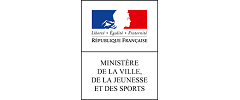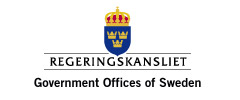“We need to explain people the effects of climate change if we want change”
Interview with Carmen Capriles of Reacción Climática
03.11.2014 |

Carmen Capriles (right) at the UNFCCC
Why did you found Reacción Climática?
“After reading the 4th Intergovernmental Panel on Climate Change (IPCC) report and the results of COP 14 in Bali, I started working with environmental issues especially around advocacy on climate change. I was convinced that something had to be done, especially to help people understand what was going on. In early 2010, after the disappointing results of COP 15 in 2009, we decided to start Reacción Climática with a group of very committed activists. Our goal was to inform people about the climate change definitions, impacts, possible solutions and at the same time encourage both mitigation as well as adaptation. Our methods include generating awareness, capacity building, research, support for the public debate and action. The organisation focuses particularly on youth, women and indigenous people, because those are the ones who will be most affected by the long-term impacts. Our mission is to provide solutions and alternatives to combat this problem.”
Is it important for the organisation to have access to international processes like the UNFCCC and the Sustainable Development Goals?
“Yes, it is very important to be able to participate at international processes because Bolivia is very vulnerable to climate change, due to the socio-economic situation and because is a mega diverse country. We believe that climate change is a global problem and that it is necessary, not only to work on a grass-roots level, but also to ensure that the voices of the affected people are being heard in international forums.
Bolivia is a developing country. We are also a new country since we established a new constitution and a new name, the Plurinational State of Bolivia, in 2010. The issue of development is therefore very important for our future as a country. It is important to learn from the past and to be able to identify what we want. The Sustainable Development Goals and the Development Agenda Post-2015 will be defining the global agenda. It is important to be aware of how this process will affect us and also how we can influence this process in a positive way in order to seek what is best for the country. Another reason for participating in these processes is that it helps volunteers to realize how difficult international processes are. At the COPs people don’t always have power to achieve a real change. This encourages us more to work at the grassroots, but our commitment leads us to act in any arena where we are able to make our voices heard.”
Read the full interview here.
Related News
“COP 19 helped me to build a stronger bond with women who care about the planet”
Interview with Isis Alvarez of the Global Forest Coalition
15.12.2014
“I am hopeful now I see a potential for women’s movements back home”
Interview with Olga Djanaeva of ALGA
04.12.2014
Nino Gamisonia: “Georgians are feeling the impact of climate change”
Interview with Nino Gamisonia of Rural Communities Development Agency
04.12.2014 | WICF
“We want to work on the environment so that we can leave a legacy for our children”
Interview with Kalyani Raj of All India Women’s Conference
01.12.2014
“If we commit ourselves we can reverse climate change”
Interview with Gertrude Kabusimbi Kenyangi of Support for Women in Agriculture and Environment
18.11.2014





































